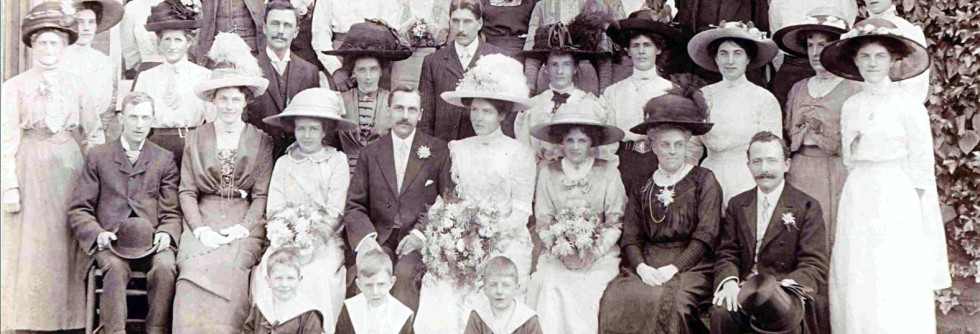
Thomas Clarke: Brought to Life by Bells by Ellen Maki, Ph.D.
“On Monday evening last the Diss Company of Change Ringers rang on the bells of the Parish Church …. with the bells half muffled, as a last tribute of respect to the memory of Thomas Clarke…”

About Thomas Clarke
Thomas Clarke was born 1825 in the small rural English village of Palgrave, Suffolk. Census records revealed that Thomas worked as an agricultural labourer, married late in life, and had no children. The newspaper report of his death in 1902 was more informative, and helps bring Thomas to life.
According to his death notice, Thomas had been a member of the change bell ringers’ company of nearby Diss, Norfolk, since his youth.… Continue reading




 Have you discovered a gardener in your family? Perhaps, like me, you have come across one or more ancestors noted in the census records as gardeners, horticulturalists, or nurserymen. Some, like
Have you discovered a gardener in your family? Perhaps, like me, you have come across one or more ancestors noted in the census records as gardeners, horticulturalists, or nurserymen. Some, like 
 Eighty-four years ago today, on 4 September 1932, great-uncle Walter Clarke died in Palgrave, Suffolk, England at the age of 71. He was a public-spirited man, and his death was therefore felt not only by family, but by his community as well. The Diss Express for 9 September 1932 carried a report of Uncle Walter’s death that included many details of his public service.
Eighty-four years ago today, on 4 September 1932, great-uncle Walter Clarke died in Palgrave, Suffolk, England at the age of 71. He was a public-spirited man, and his death was therefore felt not only by family, but by his community as well. The Diss Express for 9 September 1932 carried a report of Uncle Walter’s death that included many details of his public service.


 When Britain entered World War I in August 1914, William Henton was a young man of 23, newly married and with an infant son, living in St. Helens, Lancashire, England. With newspapers publishing appeals to join the armed services, hundreds of thousands of men joined within just a few months, and William was one of them. On 4 September 1914, William joined the ranks of the South Lancashire Regiment, 7th Battalion.
When Britain entered World War I in August 1914, William Henton was a young man of 23, newly married and with an infant son, living in St. Helens, Lancashire, England. With newspapers publishing appeals to join the armed services, hundreds of thousands of men joined within just a few months, and William was one of them. On 4 September 1914, William joined the ranks of the South Lancashire Regiment, 7th Battalion.


 Police constables in late Victorian London (England) patrolled beats that were on average 7.5 miles (12 km) in length. Patrolling was not limited to daytime, though; beat walking continued on through the night. The night beats were generally shorter – only about 2 miles long. With the appearance of motorised cars in 1890, the policeman’s duties expanded to include point duty: directing traffic. All of these duties had their challenges. Monotony seems to have been an issue, especially during nighttime patrols. There were dangers from motorised traffic getting too close, and injuries could be sustained in the prevention of crime and the apprehension of criminals.…
Police constables in late Victorian London (England) patrolled beats that were on average 7.5 miles (12 km) in length. Patrolling was not limited to daytime, though; beat walking continued on through the night. The night beats were generally shorter – only about 2 miles long. With the appearance of motorised cars in 1890, the policeman’s duties expanded to include point duty: directing traffic. All of these duties had their challenges. Monotony seems to have been an issue, especially during nighttime patrols. There were dangers from motorised traffic getting too close, and injuries could be sustained in the prevention of crime and the apprehension of criminals.… 